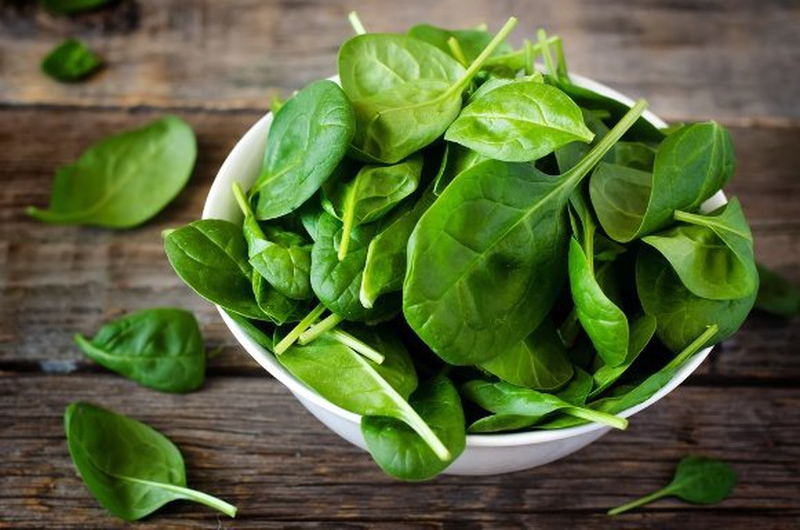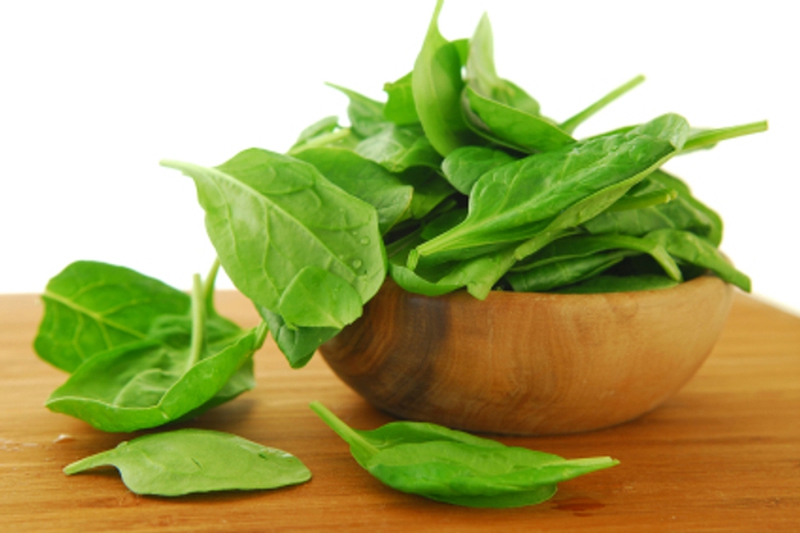With its high nutritional content and related health benefits, spinach is one of the healthiest vegetables to go for. It has rich supply of Iron and other minerals necessary for our body. Moreover, it is so delicious when cooked, baked or even as raw spinach, which makes it the favorite food of many. Spinach can add to the taste of a variety of dishes, whether it is a salad, pizza or sandwich. Well, spinach may make you healthy and strong like Popeye, but there are some bad aspects of spinach you should know, for example, people often ask this question "does spinach cause gas?" Well, let's see the answer below.

Does Spinach Cause Gas?
If you are so fond of spinach, you should have understood the fact already. You must have over eaten at least once and have felt the discomfort. Indeed, it is really an unpleasant feeling on the tummy. So, despite being vegetable, spinach do cause gas and it is advised not to have it too much.
Okay, if you are still confused, let’s understand it better. The foods that are hard to digest often cause gas trouble. And spinach, being a rich supply of fibre, is prone to the same. During digestive process when consuming too much, the fibre may not be broken down completely. And this causes gas and cramps on abdomen.
Could You Prevent Gas from Eating Spinach? And How?
So, the next time a friend asks "does spinach cause gas?", you will have a sure reply. But how to prevent this issue? Well, that’s not tough, if you try the following tips.
First of all, it is from the mouth that the digestive process starts. By mixing the food with the saliva in the mouth, you are making the food easy to be processed by the stomach. Apart from breaking down the food mechanically, the mouth mixes it with certain enzymes contained in the saliva, so that it is broken down chemically. So, the more you chew, the easier to get it digested.
Stress or tension is something that can affect your digestive system adversely. So, if you are under stress, your stomach and intestine may not work efficiently. As a result, the food does not get processed completely. So, get relaxed and try some yoga or meditation.
One of the reasons why spinach does not get break down in the stomach is due to the insufficient supply of acids and other digestive enzymes. The only way to get rich supply of these is by having spinach with hard to digest foods. Together, there will be sufficient supply of enzymes to digest the spinach. But, if you have spinach alone or as an ingredient of salad, it will be difficult to break down the same.
Water is imperative for a better digestion. We often neglect the importance of adequate supply of water to our body. You should consume enough water after having spinach.
Ginger can reduce discomforts in stomach by facilitating the digestive process smoother and faster. So, add ginger in your spinach dish to have a smooth digestion.
Pay Attention to These Vegetables That Can Also Cause Gas!
Well, we already got an answer and solution for the question "does spinach cause gas?" But you should know spinach is not the only vegetable that causes gas. There are many of the commonly used vegetables cause gas that you may not be aware of. It’s good to know about them, so that you can keep track of its consumption, thereby keeping yourself get rid of the gas trouble. Let’s take a look at some of these foods:
Beans: This might shock you, but yes, beans cause gas. Apart from having high fibre content, beans contain some indigestible carbohydrates like raffinose. This makes it a slow digesting vegetable causing gas on excess consumption.
Peas: Oligosaccharides present in peas makes it indigestible. This can cause bloating on the tummy. But, unlike other foods, peas will not trouble you with an unpleasant odour.
Broccoli: Broccoli is best known for its anti-cancer compounds. But broccoli has high sulphur content. And sulphur is the worst chemical in terms of smell. Having excess broccoli can produce hydrogen sulphide in the stomach, which results in gas trouble with very unpleasant smell.
Cabbage: Well, cabbage and broccoli comes from the same family. So, the same sulphur effect is observed in cabbage. But apart from this, the cabbage also contains methyl mercaptan which causes flatulence.
Cauliflower: Well, cauliflower contains both sulphur and oligosaccharides. These make it indigestive, causing gas with very bad smell.
Brussels Sprouts: Brussels sprouts are high in raffinose and sulphur. It is usually the consumption habit the makes the Brussels sprouts troubling. People usually have it with heavy foods, and as a result, the stomach may be unable to digest the same.
Onions: Onions contain insulin and fructooligosaccharides which can cause bloating and other intestinal troubles in people.
Asparagus: It contains fructans and raffinose which cause discomfort in the stomach and intestine. Asparagus have high nutritional value that it may not be wise to avoid the consumption of it. Just reduce the consumption in case if you feel troubled with gas.
Mushrooms: Mushroom also contain small amounts of fructans and raffinose. But, consumption in small amounts does not cause any trouble.
Artichokes: Artichokes are rare and people do not consume it often compared with other foods on the list. But people are reported to have extreme discomfort and bloating in abdomen on its consumption. It is better to avoid this vegetable for the sake of your health.
Although vegetables are good for the health, excessive consumption might have adverse effect. It is always good to keep a balance between the food items you have. Just optimize the consumption of each of the above vegetables, to stay healthy and comfortable without gas.

View All Comments /Add Comment